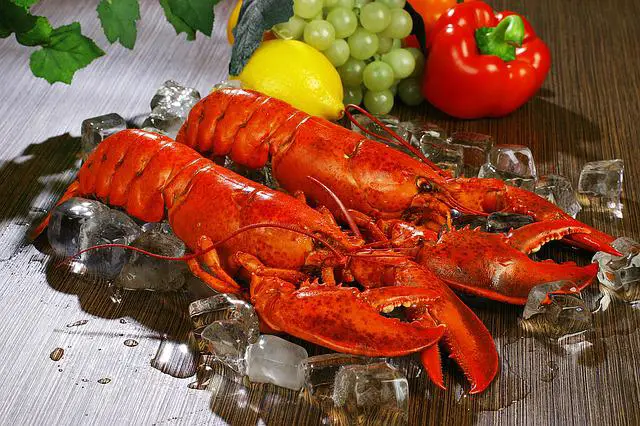
Among the various crustaceans that the cat can eat, does it also include lobster? Let’s find out together in this article, evaluating the pros and cons of the food.
Cats, as we know, are fond of fish; but in the same way they seem to adore crustaceans. Among the foods that make up the last category, can the cat eat lobster? And if so, how? Let’s find out together in this article, analyzing the possible advantages and disadvantages related to the consumption of this food.
Lobster in the cat’s diet
The owner of a pet must be especially careful in looking after their diet.
The cat is no exception; indeed, if you like, it requires even more concentration. The little feline inherited the eating habits of its ancestors in nature; when, as a hunter, he had to look after his own needs.
Therefore the animal prefers many small meals throughout the day, and always fresh. It is known that the feline can eat fish and crustaceans. How much? And which? For example, is lobster included among the crustaceans that cats can eat?
The answer is absolutely positive: the little feline can be fed the crustacean, which has several beneficial substances for its body. An example is Omega-3: for our cat it is a cure-all for the joints, heart, skin and hair.
The benefits also concern the immune system, which the food, provided it is in the right proportions, helps to strengthen.
Some useful tips

We come, however, to the painful notes, or the disadvantages that are linked to the consumption of this food by the feline.
Most of them are not inherent in food, but derive from the mode of administration. Let’s start with the fact that lobster must be cooked: although raw crustacean is a delicacy for the feline, cooking it purifies it of harmful bacteria for its organism.
It is almost superfluous to add, of course, that the food must be cleaned of its shell; even a small piece of it could cause the feline to suffocate.
Let’s move on to the nutritional properties of the food. Lobster is not nutritionally complete for the cat, and therefore cannot become part of its menu on a permanent basis. Normally, given the cost of the food, the problem shouldn’t arise. However, it should be noted that the cat was and remains an obligate carnivore.
The little feline needs certain substances that only meat is able to provide him with exhaustively: the importance of taurine in cats is more than well established. Therefore the food should be given in small doses, occasionally, during a snack.
When cooked, lobster loses some of the nutrients it normally offers; but as seen for the above reasons, the cat cannot eat it raw.
Furthermore, the habitual consumption of the food could be deleterious, in the long term, for another reason: cats than humans would be more prone to the accumulation of heavy metals present in crustaceans due to the pollution of marine waters; although the latter point is not a peaceful truth in the veterinary literature.
Finally, a useful tip for all seasons: before letting your cat try a new food, you can always ask your trusted veterinarian for advice.






